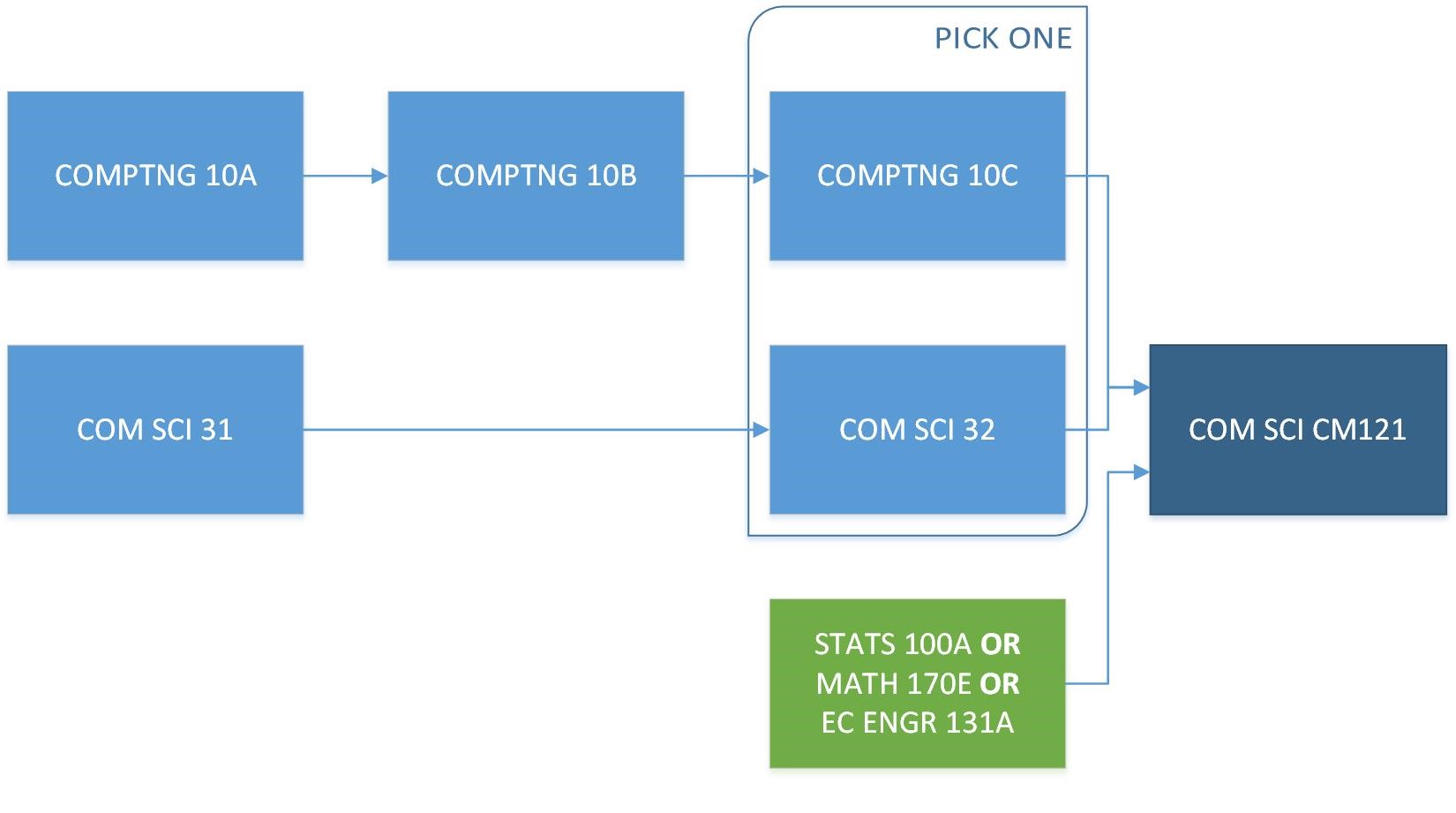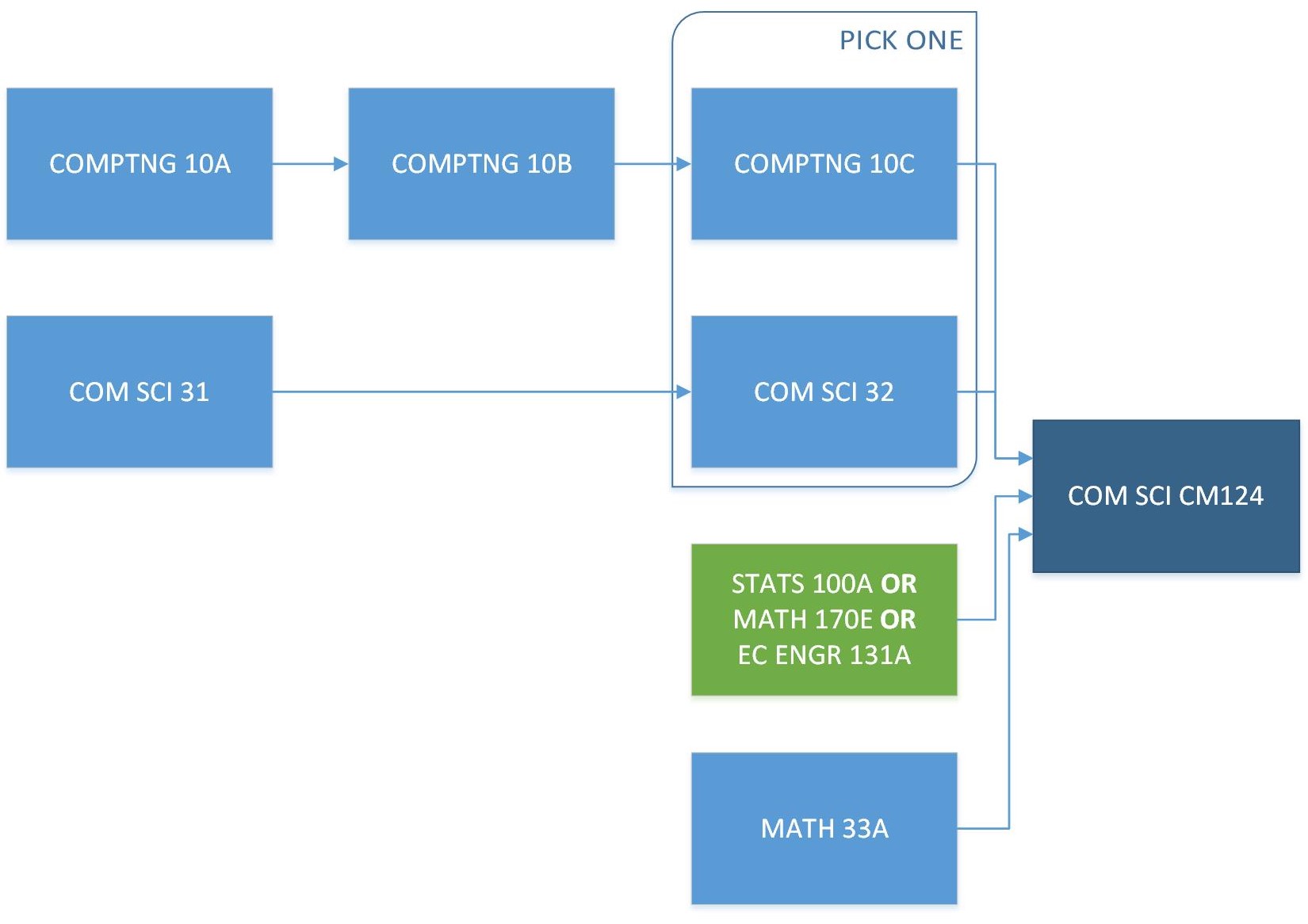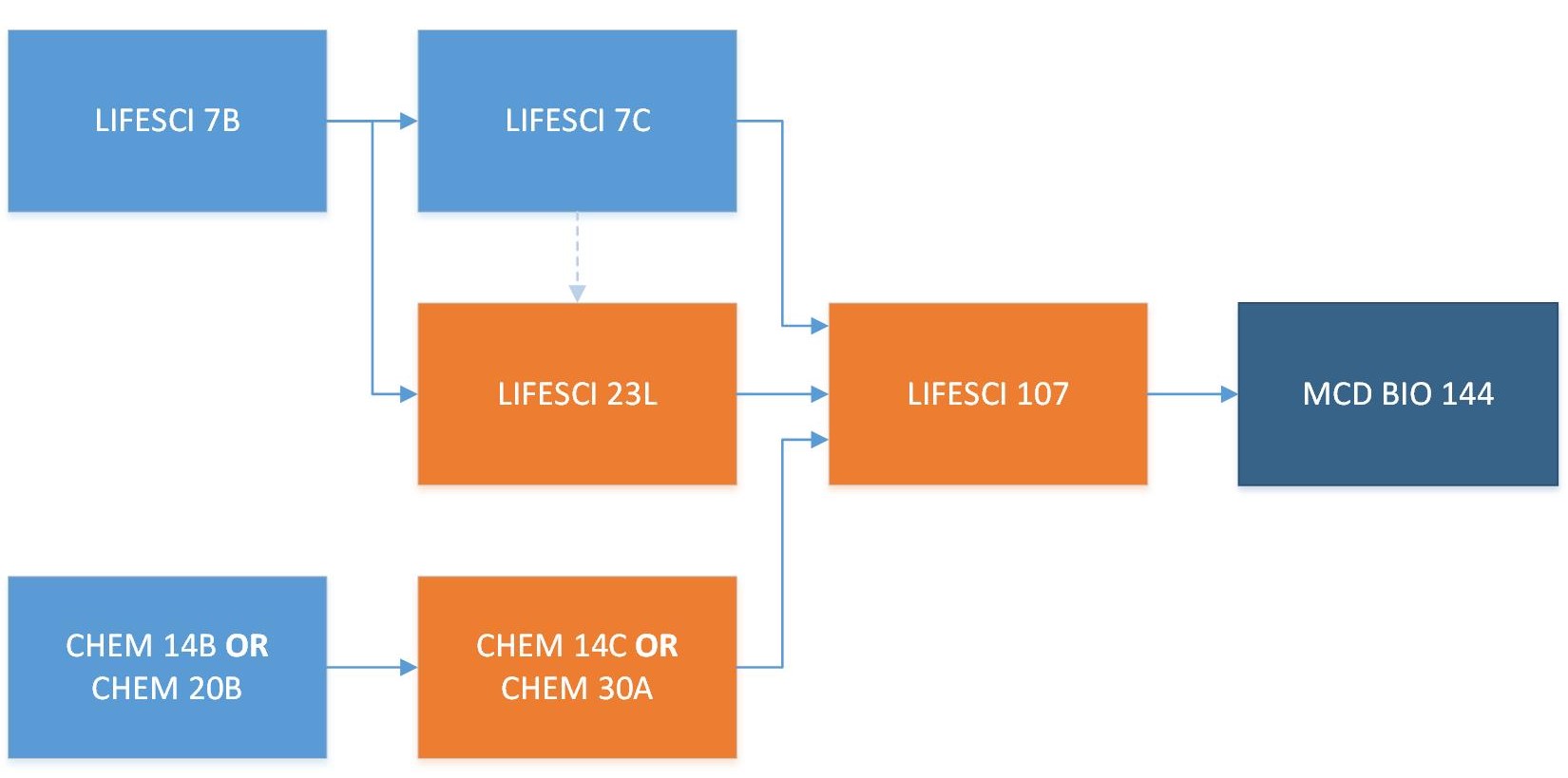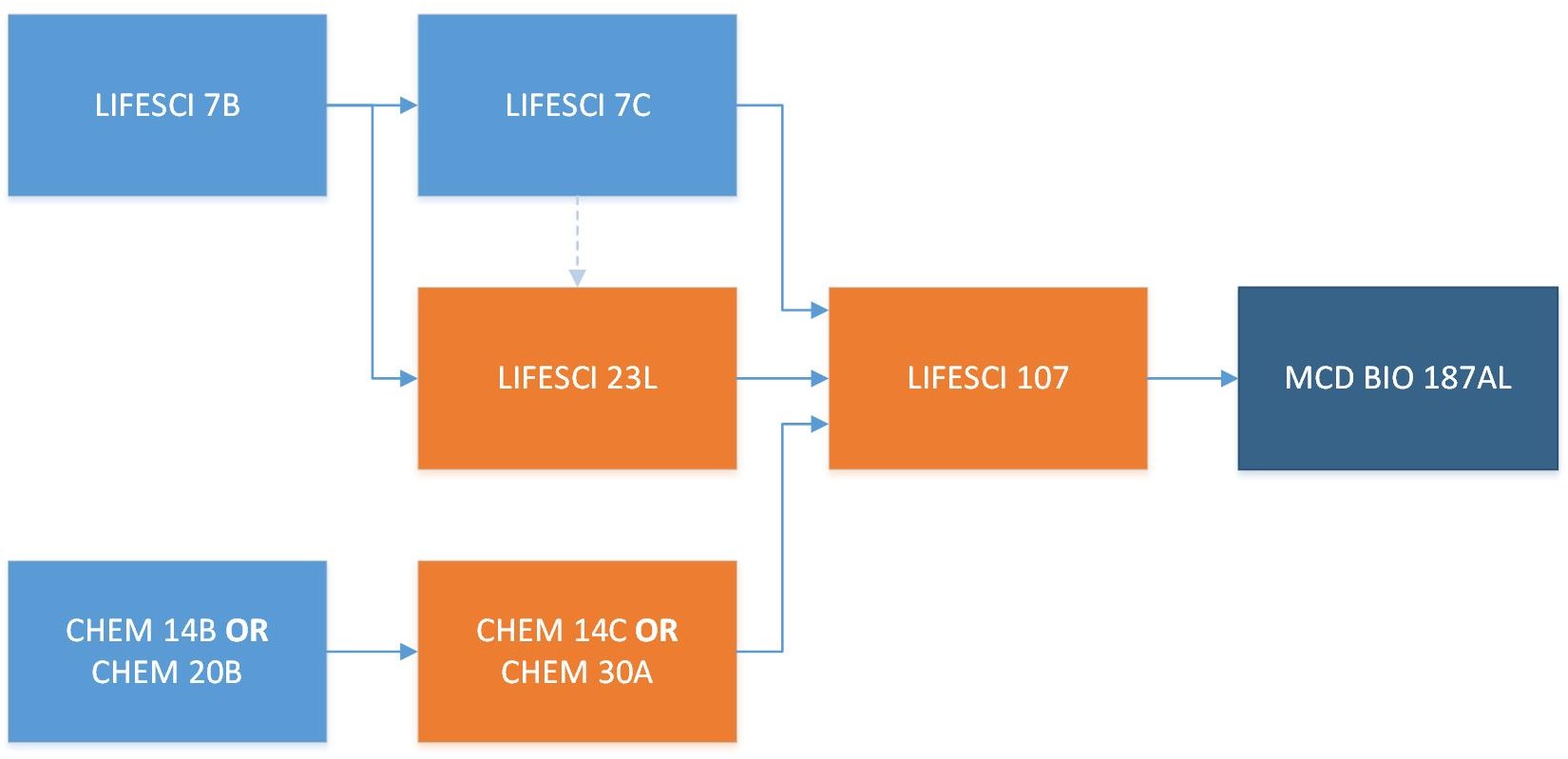The Bioinformatics concentration is designed for students interested in the computational discovery and management of biological data, primarily genomic, proteomic, or metabolomic data. The concentration emphasizes computational, statistical, and other mathematical approaches for depicting (modeling) and analyzing high-throughput biological data and the inherent structure of biological information. Example research problems include: finding statistical patterns that reveal genomic, evolutionary, and developmental information; or studying how regulatory sequences give rise to programs of gene expression.
Concentration Curriculum
1. COM SCI CM121: Introduction to Bioinformatics (4)
2. COM SCI CM124: Machine Learning Applications in Genetics (4)
3. MCD BIO 165A: Biology of Cells (5) OR MCD BIO 144: Molecular Biology of Cellular Processes (5)
4. PHYSCI 125: Molecular Systems Biology (5) OR MCD BIO 187AL Research Immersion Laboratory in Genomic Biology (5)
5. Elective course chosen from list below:
| BI METHODOLOGY |
|
| BIOMATH M211/BIOSTAT M239/HUM GEN M211 | Mathematical and Statistical Phylogenetics (4) |
| CHEM CM160B/CHEM CM260B/COM SCI CM122/COM SCI CM222/BIOINFO M222 | Algorithms in Bioinformatics (4) |
| HUM GEN M207A/BIOMATH M207A/BIOSTAT M272 | Theoretical Genetic Modeling (4) |
| PHYSCI 125 | Molecular Systems Biology (5) |
| STATS M254/BIOMATH M271/BIOINFO M223 | Statistical Methods in Computational Biology (4) |
| EE BIOL C135/C235 | Population Genetics (4) |
| EE BIOL C172/C202 | Advanced Statistics in Ecology and Evolutionary Biology (4) |
| BI COMPUTER SCIENCE | |
| C&S BIO M186/COM SCI CM186/COM SCI CM286/BIOENGR CM186/BIOENGR CM286/EE BIOL M178 OR COM SCI/BIOENGR M182 | Computational Systems Biology: Modeling and Simulation of Biological Systems (5) OR Dynamic Biosystem Modeling and Simulation Methodology (4) |
| COM SCI 130 | Software Engineering (4) |
| COM SCI 143 | Database Systems (4) |
| COM SCI 168 | Computational Methods for Medical Imaging (4) |
| COM SCI 170A | Mathematical Modeling and Methods for Computer Science (4) |
| COM SCI 180 | Introduction to Algorithms and Complexity (4) |
| COM SCI 181 | Introduction to Formal Languages and Automata Theory (4) |
| BI MOLECULAR & CELLULAR BIOCHEMISTRY | |
| C&S BIO M175/CHEM M186 | Stochastic Processes in Biochemical Systems (4) |
| CHEM 110A | Physical Chemistry: Chemical Thermodynamics (4) |
| CHEM 110B | Physical Chemistry: Intro to Statistical Mechanics and Kinetics (4) |
| CHEM 125 | Computers in Chemistry (4) |
| CHEM 153A/CHEM 153AH | Biochemistry: Introduction to Structure, Enzymes & Metabolism (4) |
| CHEM 153B/CHEM 153BH | Biochemistry: DNA, RNA, and Protein Synthesis (4) |
| CHEM 156 | Physical Biochemistry (4) |
| MCD BIO CM156/MIMG CM156 | Human Genetics and Genomics (5) |
| MIMG 101 | Introductory Microbiology (4) |
| MIMG 168 | Molecular Parasitology (4) |
| MIMG C185A | Immunology (5) |
Students in the Bioinformatics concentration must also complete:
- Mathematics 32A (For students who complete the LIFESCI 30 math series, C&S BIO M32 can fulfill this requirement)
- Computer Science 32 OR Program in Computing 10B and 10C
Concentration Course Planning
When planning major coursework, students must be mindful of pre-requisites. Some courses for the Bioinformatics concentration have additional pre-requisites that are not part of the CaSB major or pre-major curriculum. The flowcharts below are meant to help students plan out concentration coursework by depicting the requisites for each requirement. These flowcharts were last updated September 2021. Always check the Registrar’s Course Descriptions for updated requisites. Additionally, students must be mindful of when classes are offered (i.e., which quarters). Students should check the Schedule of Classes for updated course offerings.
It is recommended that students meet with their Departmental Counselor regularly to plan out major coursework.
Other Important Information
All major courses must be taken for a letter grade, C or better.
^CaSB made a temporary exception allowing pre-major courses taken between Spring 2020 and Summer 2021 to be taken for a Pass grade. More details on this exception can be found here.
Students must have a minimum 2.0 GPA in upper-division major coursework to graduate.
Students who receive a C- or below in a major course must either repeat the course or petition to have the lower grade count for the major. More information on petitioning can be found here.
Students are subject to any requirement changes in the major, including concentrations, until they are officially admitted to the major.








